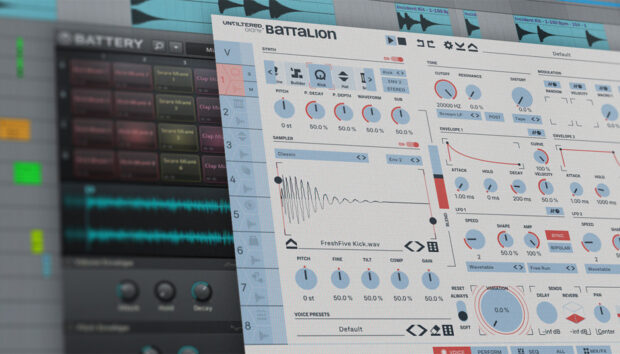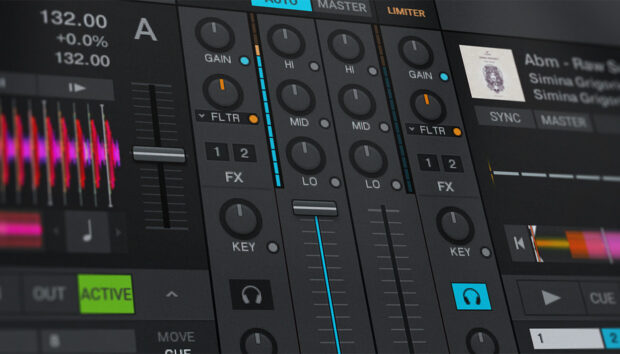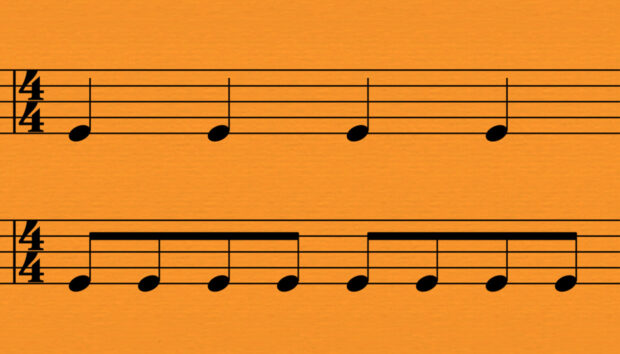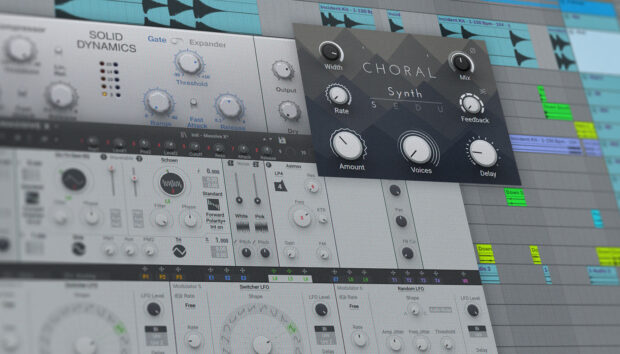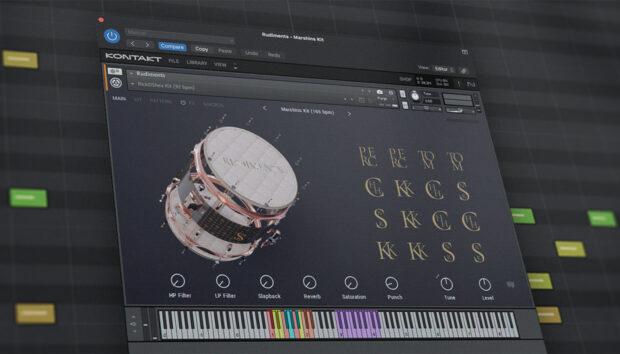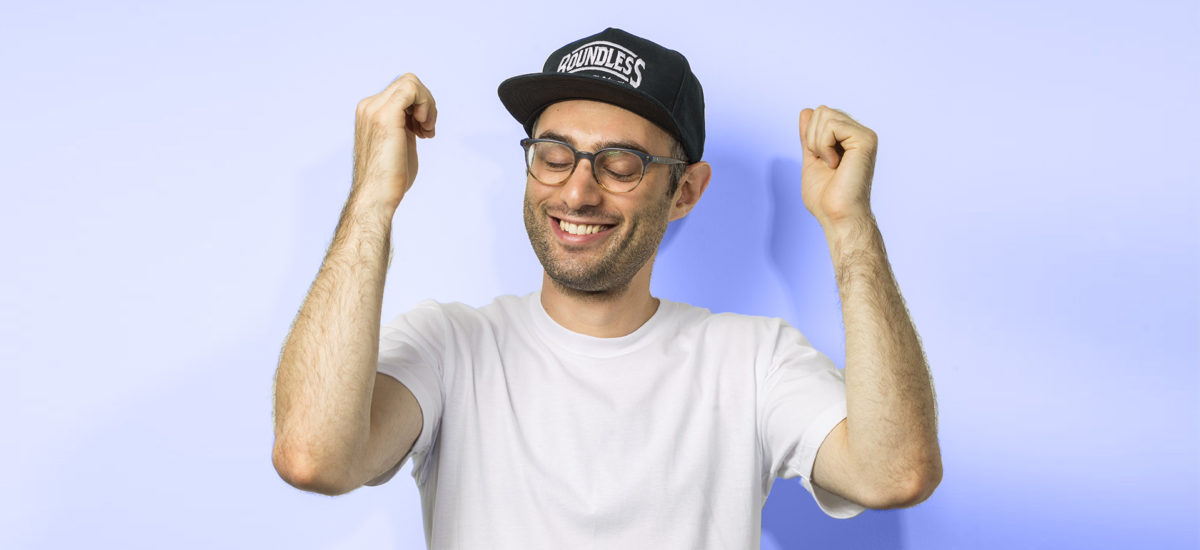
Quarantine? Social distancing? This is how I’ve been living and working my entire adult life. Sunshine? Never heard of it. Fresh air? Tried it once, not for me. The sky? Overrated, uncool, pretentious, sometimes drops heaps of water on you. So, as someone for whom working from home in total isolation is actually ideal, I thought I’d share some of my strategies for staying productive & sane when it’s just you, your speakers, and your giant white acoustic panels.
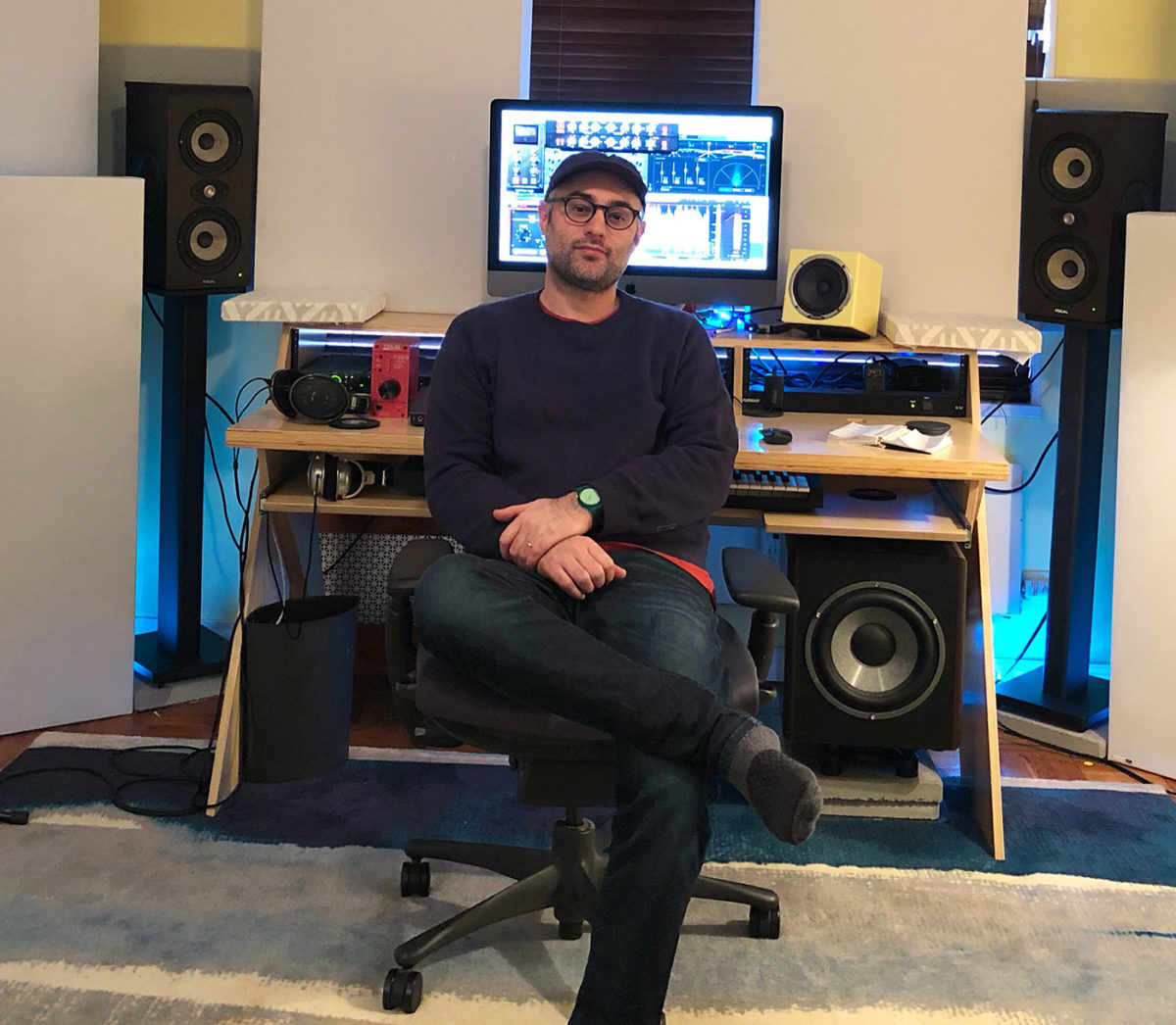
Put on pants
It’s very, very easy when you work from home to spend all day in your pajamas. I don’t think I wore pants from 2013-2015. But things like showering, brushing your teeth, grooming, and putting on clothes that are different from the ones you wore yesterday all help signal that the day is starting and it’s time to work. Dress to impress! I even have home studio shoes that I only put on to make bangers. Here are some suggested home studio looks:
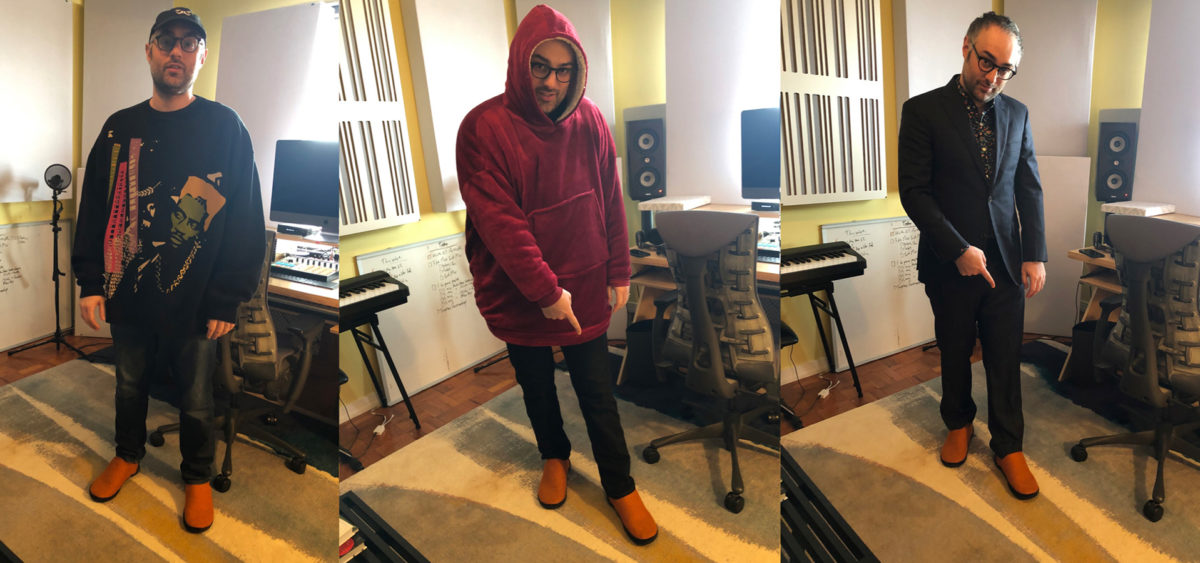
Remove distractions
No phones in the studio! I keep my phone at least two rooms away at all times. Remove anything that might make your brain go, “I wonder what jobs Renée Zellweger had before she became an actress” or “where does the word pumpernickel come from?” No internet browsers, no WhatsApp, no iMessage, no social media. Don’t ‘gram, don’t tweet, don’t swipe, don’t Tik Tok. Keep the outside world for your breaks, which brings me to my next point.
Have a routine
One of the great joys of working on your own is no one tells you how to spend your time. You are the boss. However, this freedom can also be a great pitfall for productivity. Want to tweak your snare drum until it’s 4 in the morning? No one is telling you not to! Want to make one drum loop at 12pm and then call it a day at 12:15? You totally can!
I find I’m most productive if I have set work hours and set work days. For me it’s Tuesday-Saturday, 10am-6pm. I get in the studio at 10am and keep my work hat on (I have a lot of accessories) until 6pm. This clear division of time produces better personal results than, say, working all day, all the time. Often, all it takes to solve a problem that seemed impossible at 2am is a good night’s sleep and a fresh mind. More isn’t always more (I think there’s an expression for that?).
I always work in the same place. Even if you don’t have a dedicated studio room, anything you can do to dedicate a specific area of your home as the work zone is helpful. Maybe it’s one nook in your bedroom that’s for work and only work. Maybe you put a special blanket on your sofa when it’s time to EQ.
I also typically take 5-10 minute ear breaks every hour. Especially with audio, one can get lost in the sauce. As your hearing acclimates to what it’s processing, how you perceive sound actually changes. Regular breaks let your brain and ears restart and refresh.
Make a plan
But how do you fill all that time? I like to write down a set of to-dos each week and each day. My whiteboard is my best friend (we even have a secret handshake). For the daily lists, often I include how long I’d like to focus on a particular task. The increments could be as low as 15 minutes or as long as 4-5 hours, and often I’ll work with a literal timer.
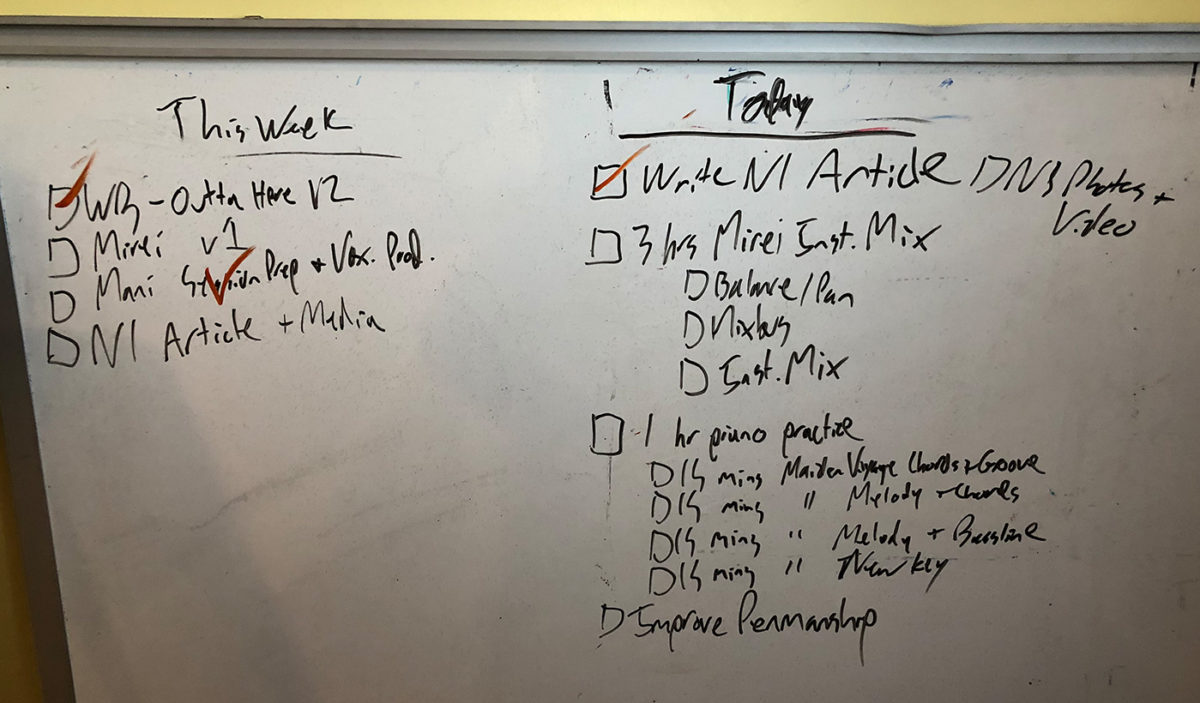
It can also, of course, help to have longer term goals. Monthly, yearly. Maybe you want to make 20 beats in May. Or learn how to play three new pieces on the piano. Or maybe you want to conduct your own Super Size Me experiment and see what happens to your body if you eat only canned beans for an entire month (spoiler alert: it doesn’t smell good). Write down the goal, and keep track of your progress.
Separating types of tasks is often beneficial for productivity. I tend to start my day with flow-state creative projects: Mixing, making new music, finishing tracks. As the day progresses, I might switch to more repetitive workflows like practicing an instrument or technique. Then comes business/admin related items like emails, social media, phone calls, etc. And finally, I often will end my day with either learning (reading, watching videos) or tedious studio necessities like file organization or session prep.
Look, I can make all the plans in the world and try to be super disciplined, but like anyone, sometimes I just feel blocked. Here are of my go-to’s for when I’m just not feeling it:
- Watch a tutorial
- Read an article about an unfamiliar concept
- Try to copy someone else’s song or performance (this might seem lame, but it can be a great learning tool)
- Compare and contrast specific types of plug-ins (e.g. a shoot-out of 20 different potential lead vocal compressors)
- Go through and save synth presets
- Experiment with specific effect types and save your favorites (e.g. mess with crazy reverb chains and save your favs)
- Build session templates (mixing, vocal recording etc.)
- Listen to new music (this is obviously crucial if you’re a DJ, but if you’re a producer or engineer, it can help inspire you or refresh your ear).
Pay attention to your health (and mental health)
I’m very clearly not a doctor, but I do know that I work better if my body feels good and my mind feels good. This means exercising, trying to eat and drink well, taking breaks, and yes, even interacting with those pompous jerks the sun and the sky. It took me a long time to learn that prioritizing healthy practices, even at the cost of time in the studio, resulted in more efficient and effective results (and, you know, also a greater sense of well-being and happiness).
This is very specific to me, but nothing gets me back to normal after an all day mix session like video games. I had initially quit gaming after I peaked collecting all 120 stars in Super Mario 64 at age 11. But playing Xbox with my nephew Alvin got me back in the game, and now I play FIFA 20 Ultimate Team any time I’m feeling fried.
Trust the process

Shout out to Joel Embid above (aka “The Process,” for the non-hoops fans). When working alone, it can be extremely easy to get discouraged. There’s very little external validation day-in and day-out, and some days, everything you do is going to suck. It’s important to know that there is no wasted time. Even a day of failures is a day of progress and improvement. The time you put in is the goal, in and of itself. It takes a leap of faith, but getting your hours in will, for sure, produce growth and results. So, relish in the small things, try to learn and improve every day, even if it’s just a little, and please – for your own sanity – put on some pants.
Shiftee is a mix engineer, producer, and world champion DJ living & working in Brooklyn.








